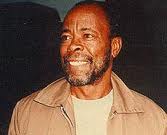My name is Assata Shakur, and I am a 20th century escaped slave. Because of government persecution, I was left with no other choice than to flee from the political repression, racism and violence that dominate the US government’s policy towards people of color. I am an ex-political prisoner, and I have been living in exile in Cuba since 1984.

I have been a political activist most of my life, and although the U.S. government has done everything in its power to criminalize me, I am not a criminal, nor have I ever been one. In the 1960s, I participated in various struggles: the black liberation movement, the student rights movement, and the movement to end the war in Vietnam. I joined the Black Panther Party. By 1969 the Black Panther Party had become the number one organization targeted by the FBI’s COINTELPRO program. Because the Black Panther Party demanded the total liberation of black people, J. Edgar Hoover called it “greatest threat to the internal security of the country” and vowed to destroy it and its leaders and activists.
In 1978, my case was one of many cases bought before the United Nations Organization in a petition filed by the National Conference of Black Lawyers, the National Alliance Against Racist and Political Repression, and the United Church of Christ Commission for Racial Justice, exposing the existence of political prisoners in the United States, their political persecution, and the cruel and inhuman treatment they receive in US prisons. According to the report:
‘The FBI and the New York Police Department in particular, charged and accused Assata Shakur of participating in attacks on law enforcement personnel and widely circulated such charges and accusations among police agencies and units. The FBI and the NYPD further charged her as being a leader of the Black Liberation Army which the government and its respective agencies described as an organization engaged in the shooting of police officers. This description of the Black Liberation Army and the accusation of Assata Shakur’s relationship to it was widely circulated by government agents among police agencies and units. As a result of these activities by the government, Ms. Shakur became a hunted person; posters in police precincts and banks described her as being involved in serious criminal activities; she was highlighted on the FBI’s most wanted list; and to police at all levels she became a ‘shoot-to-kill’ target.”

I was falsely accused in six different “criminal cases” and in all six of these cases I was eventually acquitted or the charges were dismissed. The fact that I was acquitted or that the charges were dismissed, did not mean that I received justice in the courts, that was certainly not the case. It only meant that the “evidence” presented against me was so flimsy and false that my innocence became evident. This political persecution was part and parcel of the government’s policy of eliminating political opponents by charging them with crimes and arresting them with no regard to the factual basis of such charges.
On May 2, 1973 I, along with Zayd Malik Shakur and Sundiata Acoli were stopped on the New Jersey Turnpike, supposedly for a “faulty tail light.” Sundiata Acoli got out of the car to determine why we were stopped. Zayd and I remained in the car. State trooper Harper then came to the car, opened the door and began to question us. Because we were black, and riding in a car with Vermont license plates, he claimed he became “suspicious.” He then drew his gun, pointed it at us, and told us to put our hands up in the air, in front of us, where he could see them. I complied and in a split second, there was a sound that came from outside the car, there was a sudden movement, and I was shot once with my arms held up in the air, and then once again from the back. Zayd Malik Shakur was later killed, trooper Werner Foerster was killed, and even though trooper Harper admitted that he shot and killed Zayd Malik Shakur, under the New Jersey felony murder law, I was charged with killing both Zayd Malik Shakur, who was my closest friend and comrade, and charged in the death of trooper Forester. Never in my life have I felt such grief. Zayd had vowed to protect me, and to help me to get to a safe place, and it was clear that he had lost his life, trying to protect both me and Sundiata. Although he was also unarmed, and the gun that killed trooper Foerster was found under Zayd’s leg, Sundiata Acoli, who was captured later, was also charged with both deaths. Neither Sundiata Acoli nor I ever received a fair trial We were both convicted in the news media way before our trials. No news media was ever permitted to interview us, although the New Jersey police and the FBI fed stories to the press on a daily basis. In 1977, I was convicted by an all- white jury and sentenced to life plus 33 years in prison. In 1979, fearing that I would be murdered in prison, and knowing that I would never receive any justice, I was liberated from prison, aided by committed comrades who understood the depths of the injustices in my case, and who were also extremely fearful for my life. Continue reading →














